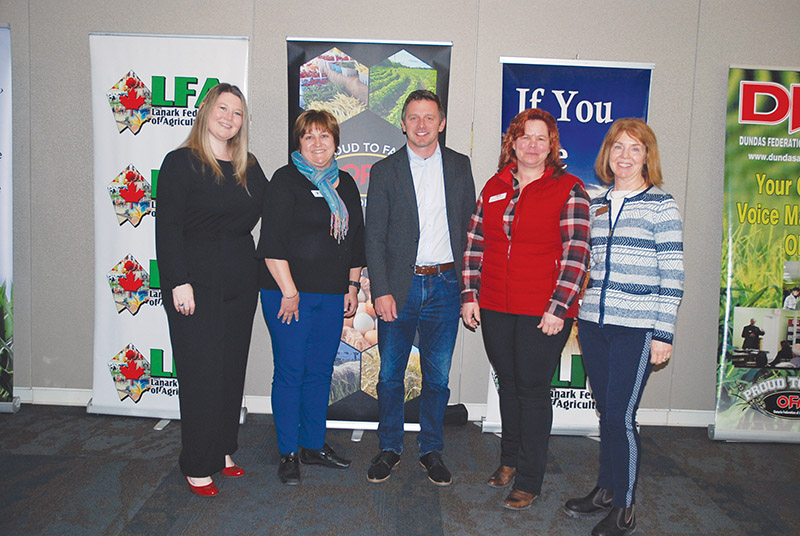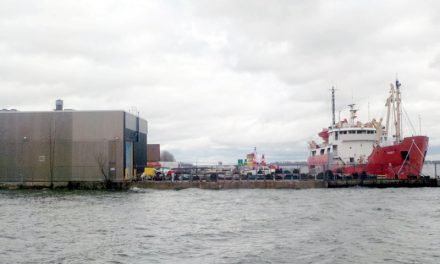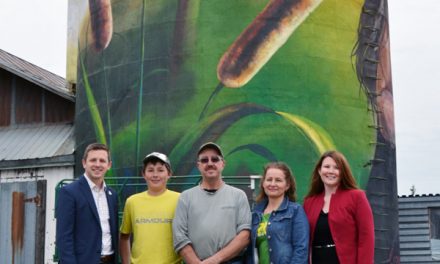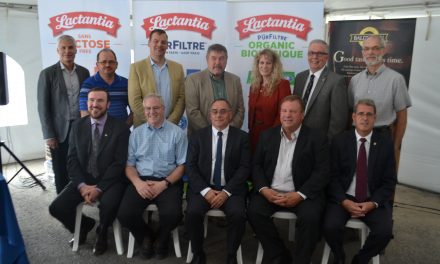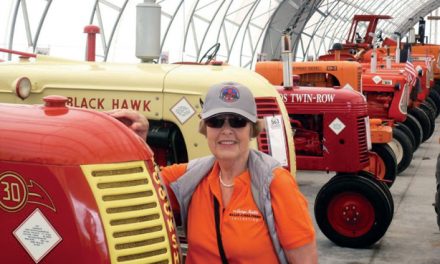The panelists at the “Let’s Talk Agriculture” event at the 2023 Ottawa Farm Show on March 16 are left to right: Heather Watson, Kelly Daynard, MP Francis Drouin, Peggy Brekveld, and Gabe Ferguson. Morin Photo
The return of the Ottawa Farm Show was a welcome return to showcasing agricultural achievements and the people behind the food industry in Ontario.
The Farm Show included several events including one called Let’s Talk Agriculture.
The discussion about agriculture took the form of a panel of four agricultural leaders with Member of Parliament Francis Drouin as the panel’s moderator.
The event was held on the last day of the three-day farm show.
The four panelists were Peggy Brekveld the president of the Ontario Federation of Agriculture, Gabe Ferguson leadership program director with the Rural Ontario Institute, Kelly Daynard the executive director of Farm & Food Care and Heather Watson the executive director of Farm Management Canada.
The discussion about the reality of farming and the issues that have come up around it was prefaced by Jackie Pemberton the zone 11 director with Ontario Federation of Agriculture.
She said, “As farmers we are innovative, diverse, and we work hard to maintain profitability, and sustainability. Despite the challenges we face day-to-day, we struggle to be recognized as the big business that the agri-food sector is, as we feed our populations, fuel our rural economies, and drive our provincial, and federal economies.
One of the topics of the discussion was about how to explain the idea of sustainability and good soil health to the consumer.
Brekveld said, “The use of the word sustainability is “Vogue” in all levels of communications in agriculture today, and it is used when we talk of profit, environment, standards and rules, regulation and labour.”
She added that sustainable agriculture is made up of three components that interact with each other. They are: economic profitability, environmental stewardship and social reasonability. She believed it is important that the concept of sustainability was embraced at all levels of the supply chain and not just by the producer.
Brekveld said in order to foster trust between the farmer and the rest of society you have to demonstrate that trust, and belief in sustainability is at the beginning of the food chain cycle on the farm.
The next topic was all about maintaining the consumer’s trust.
Daynard responded that that issue when she said, the farmer’s message about farming, animal welfare, environmental and food safety issues, activities by special interest groups and government legislation are not getting out to the public or the consumer.
“We have to keep telling our story,” she said.
She said blaming the agriculture industry for many of the issues facing the planet today is silly.
She said telling the story about how farmers farm in a sustainable and efficient way is important if the industry expects the consumer to understand what farming is all about. She suggested that farmers take every opportunity to answer questions about what they do when the public or consumer asks them.
Ferguson addressed the next question for the panel which was about the need for leadership development so that there would be people in the present and in the future who could speak up for the agricultural industry.
She said, “We all can lead in the way that is most important to us, or most comfortable to us.”
She said connecting policies with fields they are designed to affect was crucial. She said that connecting the dots on the agriculture industry, from the farm to the consumer is what will enable agriculture to be successful in the province and in Canada in general.
“We need to invest in leaders,” Said Ferguson.
She suggested that whenever a person is found to have the special skills to lead and have an impact of the consumer, the rest of the farming community should support them and encourage them to take on that difficult leadership role.
Mental health was another topic of discussion with all panelists agreeing that farmers run the risk of encountering mental health issues because of the stress and sometimes isolation of their lifestyle. They suggested that organizations, and government be aware of potential mental health issues within the agriculture industry.
A final topic was how to ensure farm growth potential as farmers get older and should succession plans be made to prepare for the next generation of farmer.
“We do not use the word succession anymore, instead we call it a transition,” said Watson, noted that it was not just a farm property that had to transition it was, all that knowledge and experience that went with it.
She said a farmer can have several different ways to structure their business but they must have at some time that discussion about any future transition.
She said one of the results of the pandemic was the realization that farming was an essential service.

